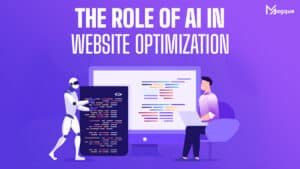SEO Trends for Website Optimization
In the ever-evolving digital marketing landscape, staying on top of SEO trends is crucial for optimizing your website and staying ahead of the competition. Let’s dive into some of the most impactful trends shaping the world of website optimization in 2024.
Voice Search Optimization
With the rise of voice assistants like Siri, Alexa, and Google Assistant, optimizing your website for voice search has become essential. People increasingly use voice commands to search for information, and websites optimized for voice search are more likely to appear in featured snippets.
Mobile-First Indexing
Google’s mobile-first indexing means that the search engine primarily uses a website’s mobile version for indexing and ranking. As mobile usage continues to soar, ensuring that your website is mobile-friendly is no longer optional—it’s a necessity for ranking well in search results.
User Experience (UX) Optimization
User experience plays a significant role in SEO. Websites with excellent user experience, such as fast loading times, easy navigation, and high-quality content, are more likely to rank higher in search results. Investing in UX optimization can improve search rankings and increase user satisfaction.
Artificial Intelligence (AI) and Machine Learning
AI and machine learning are revolutionizing SEO by enabling search engines to understand user intent better and deliver more relevant search results. Utilizing AI-powered tools for keyword research, content creation, and website optimization can help you stay ahead of the curve in 2024.
Featured Snippets and Zero-Click Searches
Featured snippets, or position zero, are selected search results that appear at the top of Google’s organic search results. Optimizing your content to appear in featured snippets can increase your website’s visibility and drive more traffic, especially as zero-click searches become more prevalent.
Video and Visual Search Optimization
Video content and visual search are becoming increasingly popular for users who want to find information online. Optimizing your website for video and visual search, such as using descriptive titles and alt text for images, can help improve your website’s visibility in search results.
E-A-T (Expertise, Authoritativeness, Trustworthiness)
Google places a high value on E-A-T when ranking websites. Demonstrating expertise, authoritativeness, and trustworthiness in your content can help improve your website’s credibility and search rankings. This includes featuring content from reputable sources, showcasing expertise in your field, and providing accurate information.
Local SEO and Google My Business
For businesses with a physical location, optimizing for local SEO and maintaining a Google My Business profile is essential for attracting local customers. Optimizing your website for local keywords and ensuring that your business information is accurate and up-to-date can help improve your visibility in local search results.
Semantic Search and Natural Language Processing
Semantic search and natural language processing enable search engines to understand the context better and the meaning behind search queries. Optimizing your content for semantic search by using natural language and answering user questions directly can help improve your website’s relevance and visibility in search results.
Content Clusters and Topic Authority
Creating content clusters around specific topics and establishing topic authority can help improve your website’s visibility and relevance in search results. Organizing your content into clusters and linking related pages together can signal to search engines that your website is a valuable resource on a particular topic.
Schema Markup and Structured Data
Schema markup helps search engines better understand your website’s content and can improve its visibility in search results. By adding structured data markup to your website, you can enhance the appearance of your search listings and increase the likelihood of appearing in rich snippets.
Long-Form Content and Pillar Pages
Long-form content and pillar pages are becoming increasingly important for SEO. Creating comprehensive, in-depth content that covers a topic in detail can help establish your website as a go-to resource and improve your search rankings. Additionally, organizing your content into pillar pages and supporting cluster content can help improve your website’s relevance and authority.
In conclusion, staying up-to-date with the latest SEO trends is essential for optimizing your website and staying competitive in the digital landscape. Incorporating these trends into your SEO strategy can improve your website’s visibility, attract more traffic, and ultimately achieve your business goals.
Read Also:




















